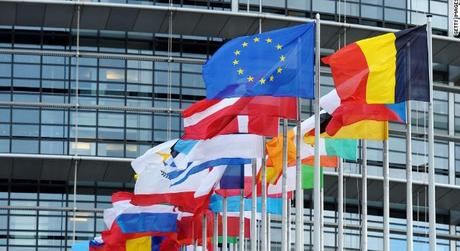
You've spent hours making lists of what you need to pack. You've obsessively checked weather forecasts for your travel dates. You've booked your flight and hotel rooms months in advance. But did you spend any time thinking about communicating with the people you'll meet during your travels? If not, fear not! Below are essential phrases and their pronunciation to help you navigate like a seasoned traveler during your European vacation.
Europeans understand the necessity of speaking more than one language. There are 23 officially recognized languages and an additional 60 regional and indigenous variations across the European Union. More than 50% of European residents speak more than one language and 35% can speak up to four or more. In the U.S., only 25% of citizens can speak more than one language, and 90% of them learned it from their parents, not in school.
Most people you encounter on your trip will appreciate your attempt to speak the local language, even if you fumble. It shows you're interested in them, their culture, and more than just checking off another sightseeing destination on your itinerary.
Get started with these basic phrases:
Hello and GoodbyeGerman: Hallo (a-low), Auf Wiedersehen (all-veet-a-zen)
Italian: Buongiorno (bwon-jor-no), arrivederci (a-ree-ve-der-chee)
French: Bonjour (bohn-zhoor), au revoir (oh reh-vwar)
Spanish: Hola (oh-lah), adios (ah-dee-ohs)
Cultural tip: In France and Italy, greet shop owners when you enter the store. However, do not use someone's first name until invited by them to do so. Use their title (Monsieur or Madame in French, Signore or Signora in Italian.)
Please and Thank YouGerman: Bitte (bit-ta), danke (dong-ka)
Italian: Per favore (per fa-vo-re), grazie (gra-tyse),
French: Merci (mehr-see), s'il vous plaît (see voo play)
Spanish: Por favor (por-fa-bor), gracias (grah-thee-ahs)
Cultural tip: Don't let a silly mistake ruin your good manners. Making the "OK" symbol with your thumb and finger is a rude gesture in Spain and should be avoided.
Do You Speak English?German: Sprechen zie Englisch? (spre ken zee eng lish)
Italian: Parli Inglese? (pahr-lah een-gleh-zeh)
French: Parlez-vous Anglais? (par lay vu ang lays?)
Spanish: ¿Hablas Inglés? (ah blah en glays)
Cultural tip: Never interrupt a German while they are speaking. It's considered extremely rude.
Where Is the Bathroom?German: Wo ist die Toilette? (woa is dee-toilet)
Italian: Dove sono I gabinetti? (do-ve so-no ee ga-bee-ne-tee)
French: Où sont les toilettes? (oo sohn lay twah-leht)
Spanish: ¿Dónde están los servicios? (dohn-day ay-stahn lohs sehr-bee-thee-ohs)
Cultural tip: Europeans refer to the bathroom as the "toilet." If you ask for a bathroom, they may think you want to take a shower!
How Much Does It Cost?German: Wieviel kostet dies? (vay-vel cos-tet dies)
Italian: Quantè (kwan-te)
French: Combien est-il (kohn-bee-an es-eel)
Spanish: ¿Cuánto cuesta? (kwahn-toh kway-stah)
Cultural tip: Never speak about salary, wealth, and most politics in Europe.
Cheers!German: Prost! (prohst)
Italian: Salute! (sa-loo-te)
French: Santé! (sahn-tay)
Spanish: Salud! (sah-lud)
Cultural tip: Be prompt in Germany for appointments and dinner dates. The concept of "fashionably late" does not exist.
There's an App for ThatEnglish is the third most commonly spoken language in Europe. You will most likely find someone who can understand you, even if you don't speak the local language. However, if you do get stuck, use Google Translate (available both for iPhone and Android). It offers two-way instant speech translation in 32 languages, allows you to use your camera to translate text, and it works online and offline for times when you do not have connectivity.

